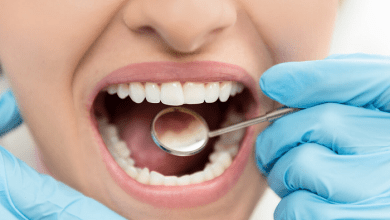
Root canal therapy is a crucial dental procedure that can save teeth from extraction and restore oral health. Skilled root canal specialists utilize advanced techniques to treat infected or damaged tooth pulp, alleviating pain and preserving natural teeth. This essential treatment helps patients maintain their smiles and avoid more extensive dental work.
Contrary to popular belief, modern root canal procedures are typically painless and efficient. Dentists use local anesthesia and precise tools to remove infected tissue, clean the root canal, and seal it to prevent future infections. The process often requires only one or two appointments, allowing patients to quickly return to their normal activities.
Maintaining good oral hygiene and seeking prompt dental care can help prevent the need for root canal therapy. Regular check-ups, proper brushing and flossing, and addressing dental issues early are key to preserving tooth health. When necessary, root canal treatment offers a reliable solution for saving damaged teeth and restoring oral function.
Understanding Root Canal Therapy
Root canal therapy is a crucial dental procedure that saves infected or damaged teeth. It involves removing the damaged pulp, cleaning the root canal system, and sealing it to prevent further infection.
The Role of Endodontics in Oral Health
Endodontics is a dental specialty focused on treating the interior of teeth. It plays a vital role in preserving natural teeth and maintaining oral health. Endodontists are experts in diagnosing and treating tooth pain, performing root canal procedures, and managing complex dental injuries.
These specialists use advanced techniques to save teeth that might otherwise require extraction. By removing infected pulp and sealing the tooth, endodontists can eliminate pain and prevent the spread of infection to surrounding tissues.
Regular dental check-ups help identify potential issues early, allowing for timely intervention and prevention of more severe problems.
Identifying the Need for Treatment
Several signs may indicate the need for root canal therapy. Persistent tooth pain, especially when biting or applying pressure, is a common symptom. Sensitivity to hot or cold temperatures that lingers after the stimulus is removed can also signal pulp damage.
Visible signs include discoloration of the tooth, swelling of the gum around the affected tooth, or a small bump on the gum near the painful tooth. In some cases, a cracked or chipped tooth may expose the pulp, necessitating treatment.
Dental x-rays and CT scans help dentists identify hidden decay or damage that may require root canal therapy.
Techniques for Pain-Free Procedures
Modern root canal procedures are designed to be as comfortable as possible for patients. Advanced local anesthetics ensure the treated area is numb throughout the procedure. Dentists may also offer sedation options for anxious patients.
Precise instruments and magnification tools allow for minimally invasive techniques. This approach preserves more of the natural tooth structure and reduces post-procedure discomfort.
The use of rotary instruments speeds up the cleaning process, shortening treatment time. After cleaning, the canal is filled with a biocompatible material called gutta-percha to seal it and prevent reinfection.
Post-treatment care instructions help manage any mild discomfort and ensure proper healing. Most patients can return to normal activities shortly after the procedure.
Aftercare and Restorative Options
Proper care after a root canal and selecting appropriate restorative solutions are crucial for long-term dental health. These steps ensure the treated tooth remains strong and functional.
Caring for Your Tooth Post-Procedure
Following a root canal, patients should avoid chewing on the treated tooth until the permanent restoration is placed. Brushing and flossing can resume immediately, but gentle care is advised around the treated area. Over-the-counter pain relievers may help manage any discomfort.
Patients should attend all follow-up appointments to monitor healing. It’s important to maintain good oral hygiene to prevent future infections. Regular dental check-ups are essential for assessing the treated tooth’s condition.
Choosing Restorative Solutions
After a root canal, the tooth often requires additional protection. Dental crowns are a common choice, offering durability and a natural appearance. They cover the entire tooth, safeguarding it from further damage.
For front teeth, veneers may be an option. These thin porcelain shells improve aesthetics while providing some protection. In cases where the tooth cannot be saved, dental implants offer a permanent replacement solution.
Dental bridges can also be considered if adjacent teeth need restoration. The choice of restoration depends on the tooth’s location, extent of damage, and patient preferences. Dental insurance may cover part of the restoration costs, making it more affordable for patients.



